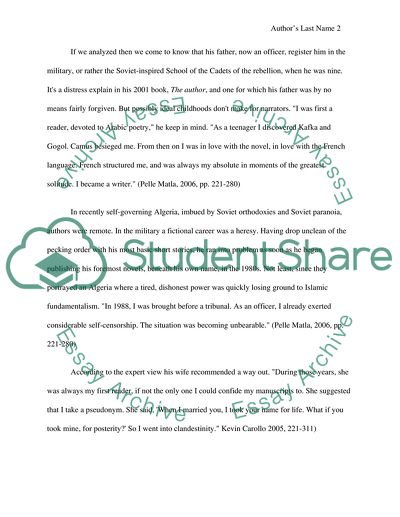Cite this document
(Analysis of Wolf Dreams by Yasmina Khadra Term Paper, n.d.)
Analysis of Wolf Dreams by Yasmina Khadra Term Paper. Retrieved from https://studentshare.org/literature/1705597-history
Analysis of Wolf Dreams by Yasmina Khadra Term Paper. Retrieved from https://studentshare.org/literature/1705597-history
(Analysis of Wolf Dreams by Yasmina Khadra Term Paper)
Analysis of Wolf Dreams by Yasmina Khadra Term Paper. https://studentshare.org/literature/1705597-history.
Analysis of Wolf Dreams by Yasmina Khadra Term Paper. https://studentshare.org/literature/1705597-history.
“Analysis of Wolf Dreams by Yasmina Khadra Term Paper”, n.d. https://studentshare.org/literature/1705597-history.


